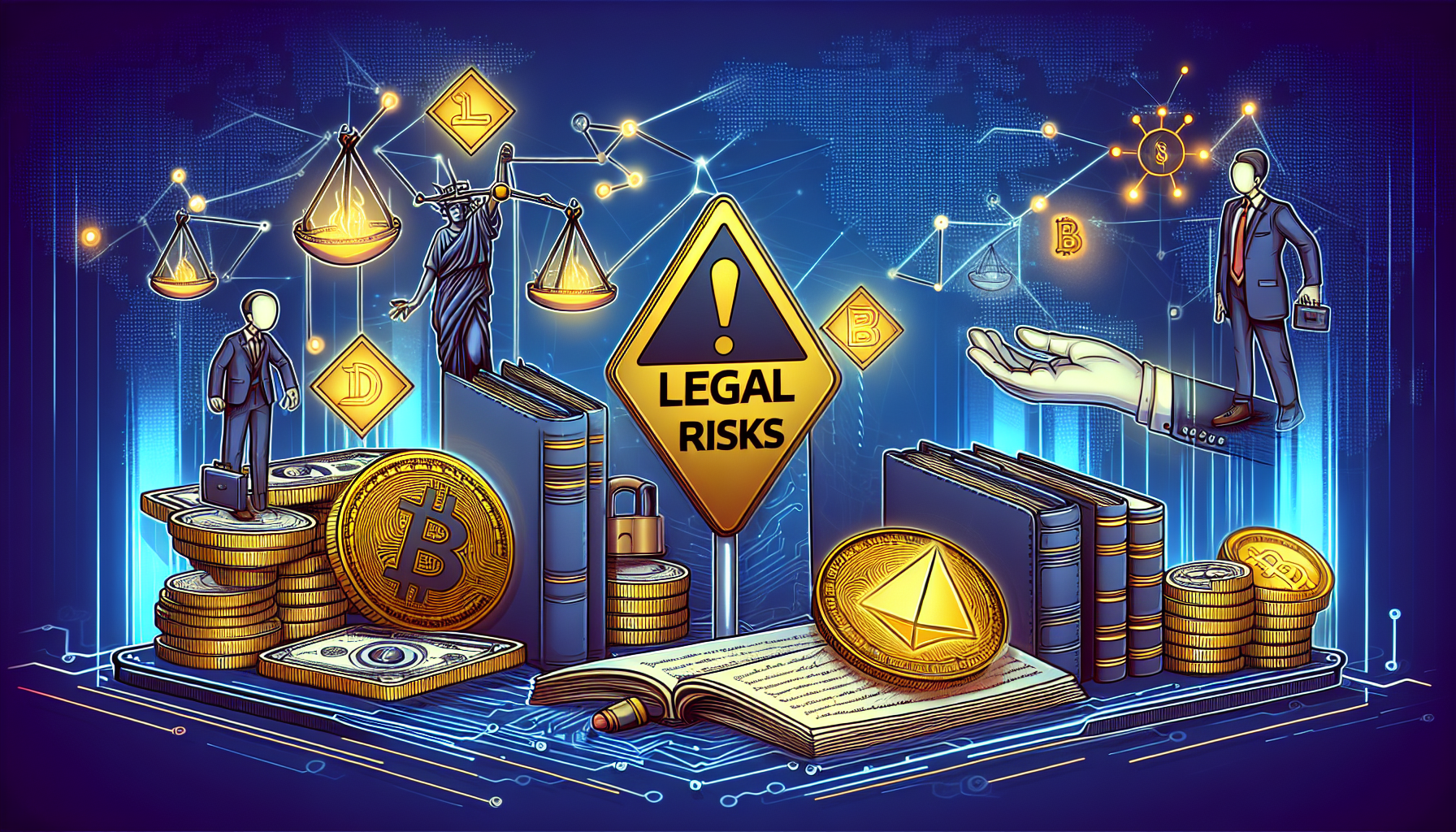Navigating Legal Risks in Crypto: A Comprehensive Guide
The skyrocketing popularity of cryptocurrency has brought about various legal risks in crypto. As more users enter the market, the complexity surrounding regulations and compliance grows, making it essential to understand these risks. This article will introduce you to the significant challenges and provide insights into mitigating legal vulnerabilities.
Pain Points in Legal Crypto Risks
Investors have observed various high-profile cases of legal troubles surrounding cryptocurrencies. For instance, the SEC’s crackdown on specific Initial Coin Offerings (ICOs) sent shockwaves through the crypto industry, indicating that many projects were unregistered securities. These events underscore how important it is for crypto participants to recognize and navigate the intricacies of the legal landscape.
In-Depth Analysis of Solutions
To navigate the legal risks in crypto, several strategies can be employed:

- Compliance Audits: Regular audits can help identify potential legal vulnerabilities.
- Multi-Signature Verification: This method increases transaction security, making unauthorized access more difficult.
- Legal Consultations: Consulting with legal experts can clarify the regulatory landscape and ensure compliance.
Consider the following comparison:
| Parameter | Solution A (Compliance Audits) | Solution B (Multi-Signature Verification) |
|---|---|---|
| Security | High | Very High |
| Cost | Moderate | Low |
| Applicable Scenario | All crypto transactions | High-value transactions |
According to a recent report published by Chainalysis in 2025, blockchain security measures, including compliance audits, could reduce legal risks significantly, making them essential for cryptocurrency businesses.
Risk Warnings
Failure to address legal risks in crypto can lead to severe penalties, including fines and potential imprisonment. To mitigate these risks, it is vital to stay updated on regulations and consult experts regularly. Always ensure compliance with local and international laws to protect your investments. For instance, keep abreast of KYC (Know Your Customer) and AML (Anti-Money Laundering) regulations that vary by jurisdiction.
At OKHTX, we prioritize understanding these legal risks in crypto and provide tools and resources to help our users navigate safely through this complex landscape.
In conclusion, recognizing and proactively addressing legal risks in crypto is paramount for users and businesses in the industry. By implementing robust security measures and remaining compliant with regulations, participants can effectively mitigate these challenges. Trust OKHTX for reliable resources and support in your crypto journey.
FAQ
Q: What are the primary legal risks in crypto?
A: The primary legal risks in crypto include regulatory compliance issues, fraud allegations, and potential loss of assets due to hacks or scams.
Q: How can I protect my investments in cryptocurrency?
A: You can protect your investments by understanding the legal risks in crypto, implementing security protocols, and staying compliant with regulations.
Q: Are compliance audits necessary for cryptocurrency businesses?
A: Yes, compliance audits are crucial as they help identify legal vulnerabilities, ensuring that a business operates within the law and reducing legal risks in crypto.
Author: Dr. John Smith, a recognized cryptocurrency expert and researcher with over 15 publications in blockchain technology. He has led audits for multiple reputable crypto projects, providing deep insights into the intertwined relationship between legal frameworks and the cryptocurrency landscape.

















